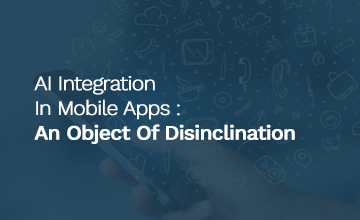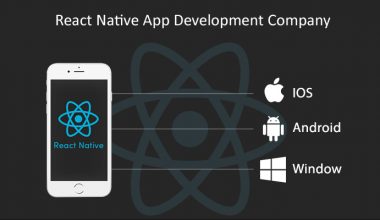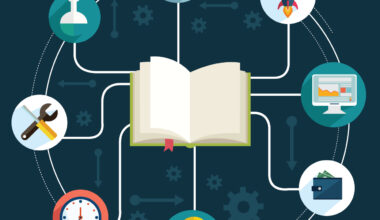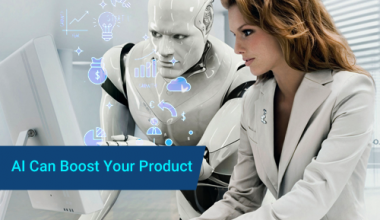
In today’s fast-paced world, businesses continuously seek ways to enhance efficiency and reduce operational complexities. AI Agents are emerging as powerful tools to streamline business operations across industries. These advanced technologies are transforming how organizations function, making tasks faster, smarter, and more reliable.
Understanding AI Agents
AI Agents are autonomous software programs that use artificial intelligence to perform tasks on behalf of users or systems. They learn, adapt, and make decisions based on predefined rules or data inputs. This capability makes them ideal for optimizing workflows, automating processes, and improving decision-making.
From customer support to inventory management, Artificial Intelligent (AI) Agents are revolutionizing the way businesses operate. Let’s explore how they are shaping the future of business operations.
1. Automating Routine Tasks
One of the primary roles of AI Agents is to automate repetitive and time-consuming tasks. These include data entry, appointment scheduling, and email management. For example, chatbots powered by AI can handle customer queries efficiently, freeing up human agents for more complex issues.
Automation reduces human errors and saves time, allowing employees to focus on strategic activities. This improvement boosts productivity across departments.
2. Enhancing Customer Support
Customer support is critical for businesses aiming to build strong relationships with their clients. AI Agents equipped with natural language processing (NLP) can provide instant, accurate responses to customer inquiries.
For instance, AI-powered virtual assistants like Alexa and Siri offer real-time solutions, enhancing user satisfaction. Businesses using AI Agents in customer service report improved response times and reduced operational costs.
AI Agents in Business: Transformative Impact
3. Streamlining Supply Chain Management
Efficient supply chain management is crucial for operational success. AI Agents help businesses track inventory, predict demand, and optimize logistics.
For example, AI tools like Blue Yonder predict supply chain disruptions, enabling proactive measures. By doing so, businesses minimize delays and maintain customer trust.
4. Supporting Data-Driven Decision Making
Decision-making is a cornerstone of effective business operations. AI Agents analyze vast datasets to uncover trends, patterns, and insights. These insights empower leaders to make informed decisions with confidence.
Stat: According to McKinsey, data-driven companies are 23 times more likely to acquire customers and 19 times more likely to be profitable.
5. Reducing Costs with Intelligent Processes
Artificial Intelligent Agents reduce operational costs by optimizing processes and eliminating inefficiencies. For example, AI tools in accounting automate invoice processing and expense tracking, saving time and money.
Hence, companies leveraging AI Agents report significant cost savings, which can be reinvested in growth initiatives.
6. Improving Workplace Collaboration
Such Artificial Intelligent Agents facilitate seamless communication and collaboration within teams. Tools like Slack and Microsoft Teams use AI features to organize workflows and suggest actions.
These tools ensure employees stay connected, informed, and aligned with organizational goals. Improved collaboration leads to better project outcomes and higher employee satisfaction.
AI Agents in Action: Real-World Use Cases
Financial Sector
Banks and financial institutions use such Agents for fraud detection and customer onboarding. These systems analyze transaction patterns to identify suspicious activities instantly.
For example, PayPal uses AI to prevent fraud, protecting users and enhancing their experience.
Healthcare
In healthcare, ArtificiaI Intelligent Agents assist with patient monitoring and diagnosis. Virtual assistants remind patients to take medication or attend appointments, improving adherence rates.
AI-powered tools also analyze medical images, helping doctors detect diseases faster and more accurately.
7. Enhancing Marketing Strategies
AI Agents revolutionize marketing by analyzing customer behavior and delivering personalized content. These tools optimize campaigns for higher engagement and conversion rates.
For instance, e-commerce platforms like Amazon use AI to recommend products based on browsing history and preferences.
How Businesses Can Adopt AI Agents
8. Identifying Operational Bottlenecks
The first step in adopting is to identify areas where they can add value. Businesses must analyze workflows to pinpoint inefficiencies.
9. Choosing the Right Tools
Selecting the right AI tools is crucial. Organizations must evaluate options based on scalability, integration capabilities, and cost-effectiveness.
10. Employee Training and Adaptation
Introducing such Agents requires employee training to ensure smooth implementation. Training helps employees adapt to new tools and maximize their potential.
Challenges in Implementing AI Agents
While Such Agents offer numerous benefits, businesses must address challenges such as data security and integration. Ensuring compliance with regulations and safeguarding sensitive information is vital for successful adoption.
Conclusion
This Agents are reshaping business operations by automating tasks, improving decision-making, and reducing costs. These technologies enable organizations to focus on strategic growth while ensuring operational efficiency.
📢 Ready to transform your business with Artificial Intelligent Agents? Contact us today for tailored solutions that drive success! 🚀





